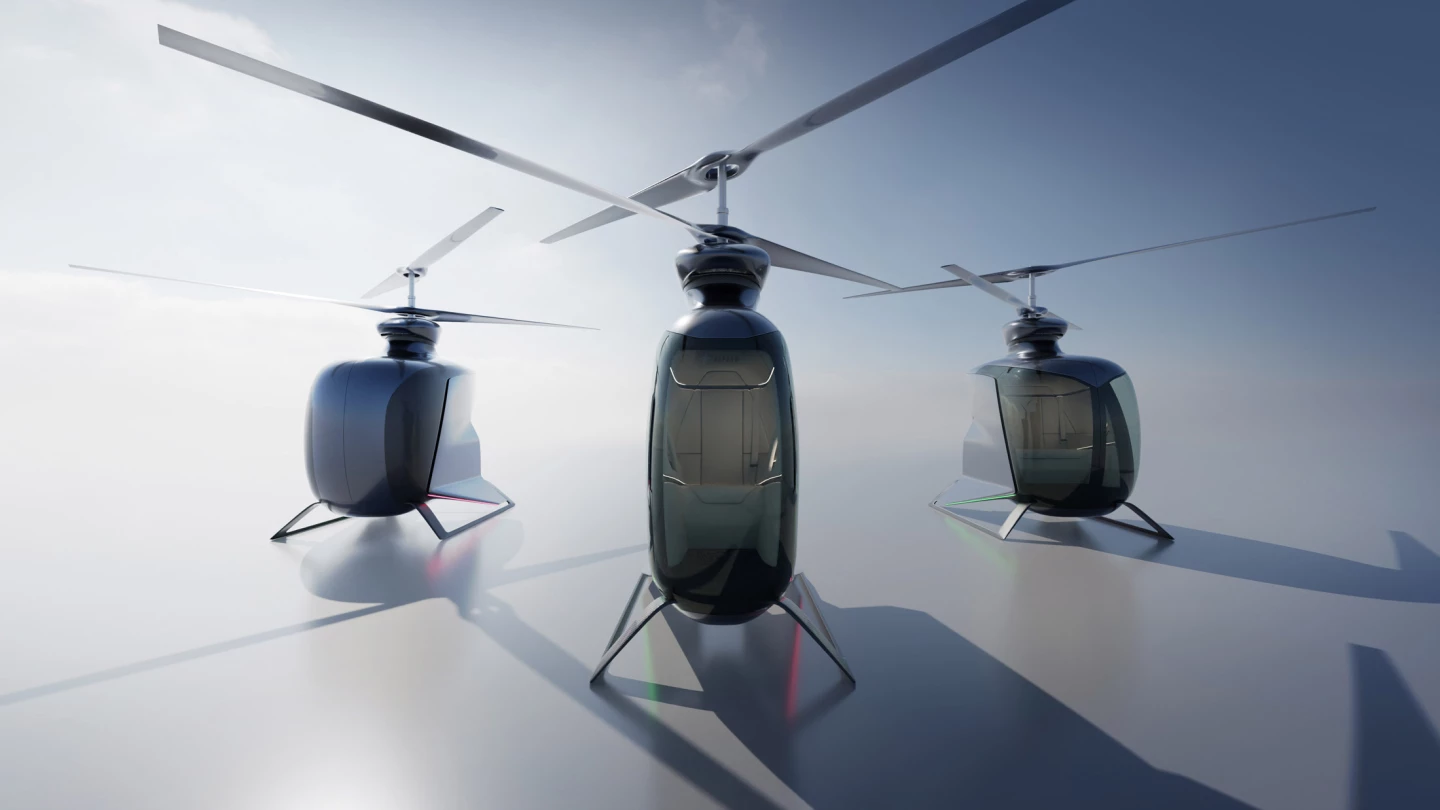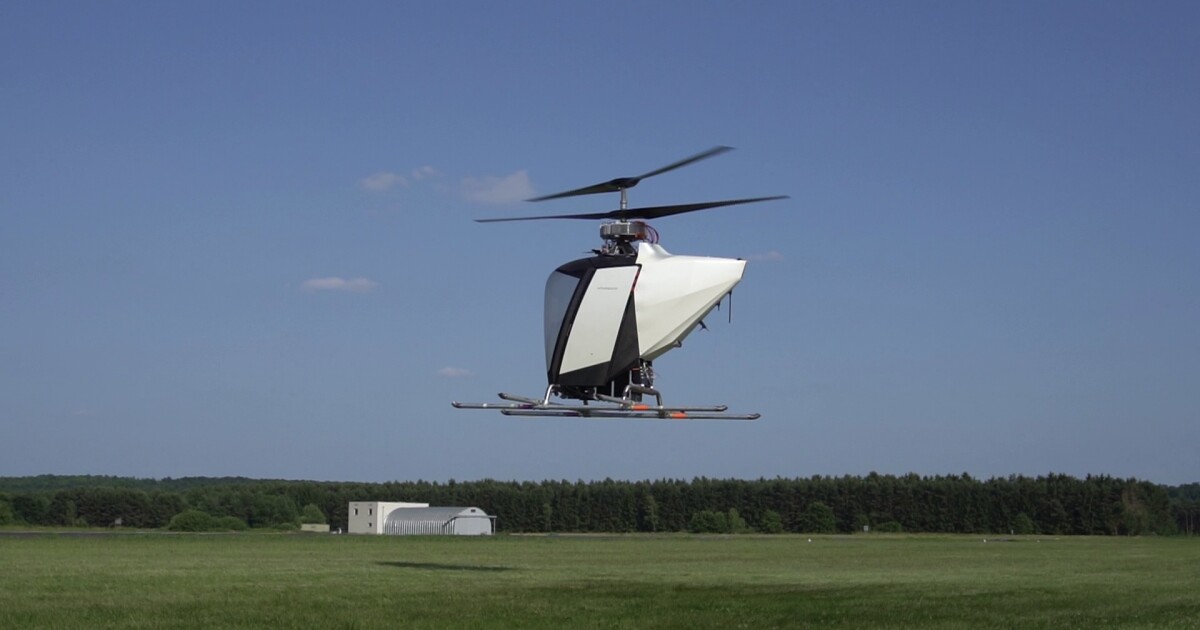Air-mobility startup FlyNow Aviation has removed the tethers from its stacked dual-rotor electric helicopter pod thing, and recorded the eCopter’s first free flight at a test facility in Eastern Austria.
FlyNow Aviation was founded in 2019 with a “clear vision to provide efficient, clean and affordable flight solutions” that are suitable for urban applications. Unlike many of its competitors in the upcoming air taxi space, the eCopter is more like a personal electric helicopter than a multi-rotor eVTOL.
Early prototype flight tests took place in 2021, followed by the maiden flight of the company’s first 1:1 scale model in 2023. Test flights and tweaks and yet more flights were undertaken at Salzberg Airport in the months since, but due to nearby air traffic the prototypes had to be tethered.
Now FlyNow has moved to a new test site in Eastern Austria, and this latest milestone sees a second-generation full-scale eCopter take to the air untethered for the first time.
FlyNow eCopter Takes Flight
“Every milestone brings us closer to making urban air mobility a reality for everyone,” said the company’s co-founder and COO, Yvonne Winter. “The successful untethered flight of our eCopter is not just a technical achievement – it’s visible proof that our vision works. Many didn’t take our tethered flights seriously, but seeing is believing. With this free flight, we’ve shown that FlyNow is ready to lift urban mobility off the ground.”
There’s still a ways to go before passengers will be able to hop from A to B in these autonomous flyers, but FlyNow says that current low-altitude flight tests will provide key real-world data to inform future development. The tests are “essential to validate system stability and safety, optimize flight control and propulsions systems, and advance our modular platform toward full certification.”
The coaxial twin-rotor eCopter is being designed in cargo and single/twin-seater configurations. It’s expected to have a top speed of 130 km/h (80 mph) and a per-charge endurance of 30 minutes for a flight of around 50 km (30+ miles) per trip. Energy consumption is said to come in at 30 kWh per 100 km.

FlyNow Aviation
The company is aiming for a maximum take-off weight of 570 kg (~1,250 lb), and reports an “industry-leading low emissions of 55 dB(A) at 150-m [490 ft] altitude” – which is reckoned to be about the same sound level as a dishwasher.
Having already secured European Special Category Specific Assurance Integrity Level (SAIL) II certification in 2022, the next step will to achieve SAIL IV – which will enable the eCopter to start commercial cargo transportation.
More testing, validation and refining is currently being undertaken apace, with FlyNow aiming to start commercial cargo operations from 2027. Once the aircraft has clocked up more than a million kilometers of cargo hauling, passengers flights are expected to follow.
FlyNow eCopter — Use Cases
Source: FlyNow
